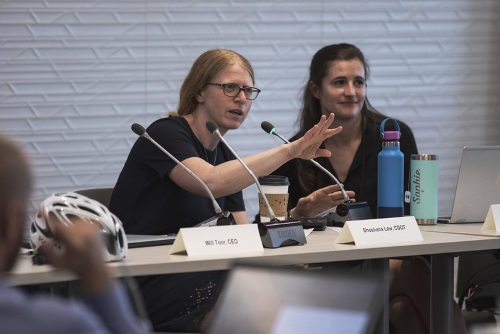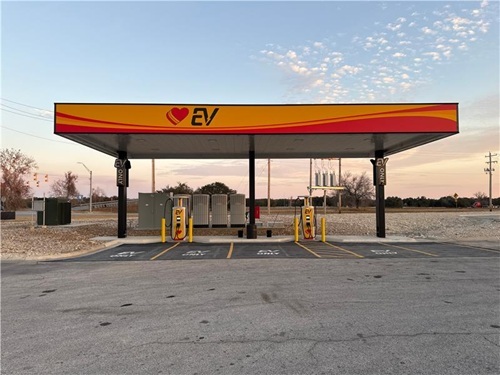In this episode of the Environmental Technical Assistance Program or ETAP Podcast, Shoshana Lew – executive director of the Colorado Department of Transportation – discusses the critical role state DOTs are playing in helping electrify the nation’s transportation system.
[‘Photo by the Colorado DOT.]
Prior to heading the Colorado DOT, Lew worked for nearly two years as the chief operating officer of the Rhode Island Department of Transportation. She also spent eight years serving the Obama Administration, including a stint as chief financial officer for the U.S. Department of Transportation.
“My career has been at the nexus of finance and infrastructure issues,” she explained on the podcast. “It’s provided an interesting vantage point to see how investment in infrastructure impacts the economy on a ‘macro’ scale as well as how it impacts everyone’s daily lives.”
Moving from the federal level to the state level added another level of detail to that transportation discussion, Lew said. When she first joined the Colorado DOT, she visited all 64 counties across the state to talk about what transportation issues they experienced. That also provided her with insight into the challenges of electrifying the state’s transportation system.
“This is something we are hugely focused on; it is kind of the moment for this,” Lew emphasized. “I think what you’ve seen last five years is the tipping point for electric vehicles (EVs) – we are at the cusp of the transition but makes the challenges very different. To get people where they need to go – for EVs to work in this space – we need to build out the EV recharging network. That has to happen now so state residents can have the option of using EVs and traveling to farthest reaches of the state.”
She pointed out that it cannot be understated how big the transition to EVs will be – especially in terms of how it will help everyone rethink mobility.
“The state DOT cannot do it all by itself – there are huge roles to be played by the private sector, public utilities, the state department of energy, and others,” Lew said. “You need to have everyone thinking about this.” To hear the full podcast, click here.
 Podcast
Podcast



